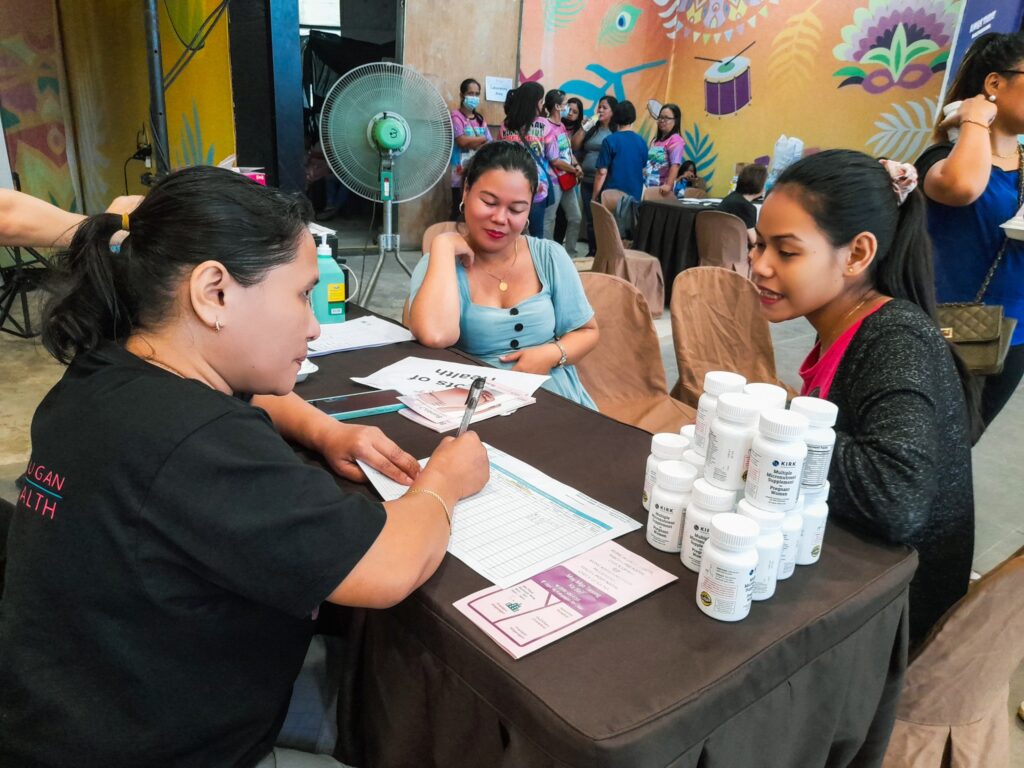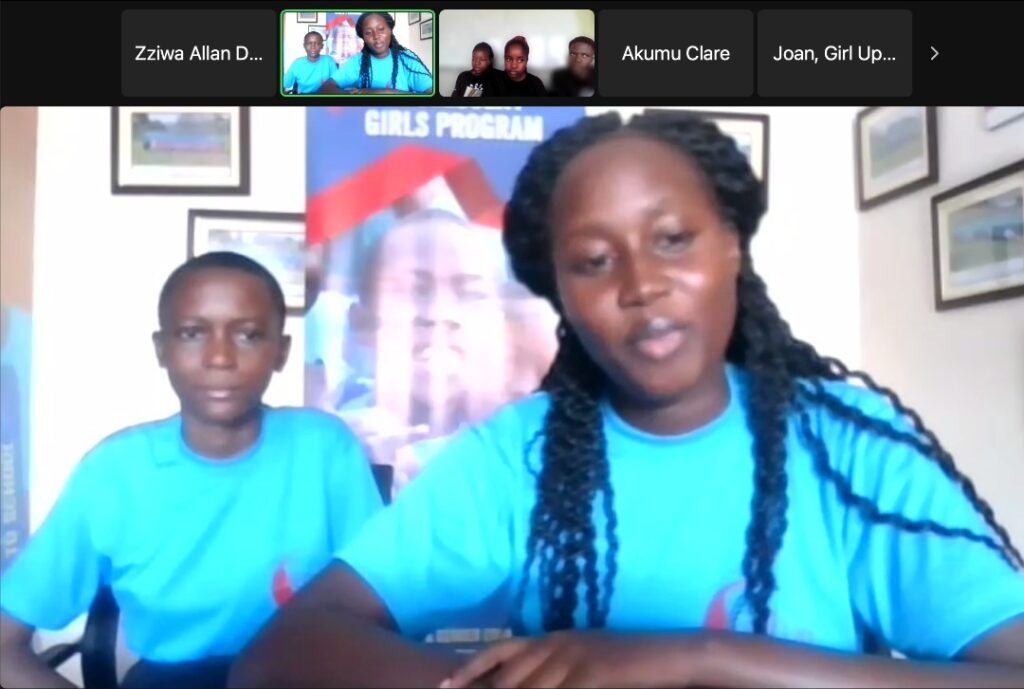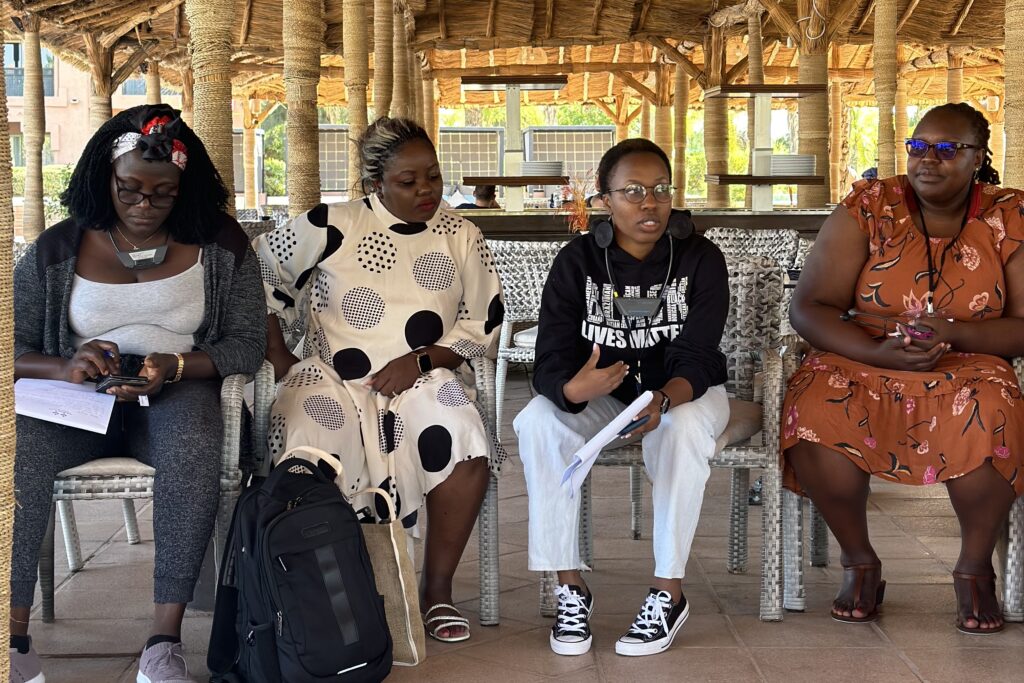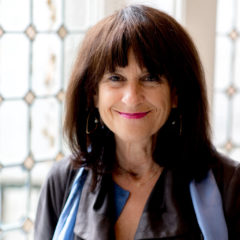Now Reading:
This Girls’ Day, We Celebrate Local Women-led Organizations Serving Girls!
October 11, 2023
This International Day of the Girl Child calls for a shoutout to WomenStrong’s 10 grantee partners focused explicitly on empowering girls.
Three of these partner organizations are dedicated to improving access to sexual and reproductive health information and care: Roots of Health, in the Philippines; Projet Jeune Leader (PJL), in Madagascar; and Copper Rose Zambia.

reproductive health counseling and services in the Philippines.
Each has forged effective partnerships with government – Roots of Health with the provincial Department of Health; Copper Rose with the national Ministry of Health; and PJL with Madagascar’s Ministry of Education, which has embraced PJL’s internationally renowned comprehensive sexual and reproductive health education curriculum and is rolling it out nationwide.
Seven more WomenStrong partners concentrate on girls’ education and empowerment. Depending on the context, their activities might include working with local communities to help keep girls in school, operating in-school curricular and girls’ clubs that train girls in life and livelihood skills, preventing child marriage and teen pregnancy, and/or supporting victims of gender-based violence with legal and counseling services.
These seven organizations span the globe — from Sahar, in Afghanistan, to Girls’ Education Network (GENET) – Malawi, to The Girls’ Legacy in Zimbabwe, to Girl Up Initiative Uganda, to The Action Foundation in Kenya, to Visionaria Network – Peru, to Women’s Justice Initiative in Guatemala. They have gotten to know one another through our WomenStrong Learning Lab, where we bring all our partners together, virtually and in person, to share strategies, tips, and challenges and to build a community of practice among local women-led organizations fighting for the rights and wellbeing of women and girls.
We’ve witnessed remarkable collaborations among partners, despite intervening distances and cultural differences. Here are just a few examples of joint undertakings forged in our Learning Lab:
- GENET – Malawi and Visionaria Network – Peru collaborated on a chronicle of their respective processes of developing gender-sensitive curricula for high school teachers and jointly presented to the Malawi Ministry of Education, which then adopted and mainstreamed the curriculum produced by GENET.
- Girl Up Initiative Uganda in Kampala and The Girls’ Legacy in Harare helped the girls they serve partner across national boundaries to co-produce a two-part webinar series where the girls outlined a set of strategies for addressing gender-based violence.
- Bridging continents, Roots of Health, in the western Philippines, and Women’s Justice Initiative, in western Guatemala, organized and co-led a brilliant session on feminist evaluation and innovative data collection during our recent Learning Lab retreat.

And there’s so much girl-focused innovation happening within each of our partner organizations! Here again, just 3 examples:
- The Action Foundation, which works with girls with disabilities in Nairobi’s informal settlements and beyond, has developed and is now in the process of instituting STEM training programs in more than 30 schools across Kenya.
- Girl Up Initiative Uganda, which works with girls in the slums of Kampala, has introduced a “climate-smart” curriculum in the schools their girls attend that includes educating the girls about climate change, about the dangers of plastics and how to make reusable sanitary pads, and about the importance and nutritional value of urban gardens.
- Women’s Justice Initiative’s remarkable recent success in securing a legal judgment against a teacher who had sexually assaulted an 11-year-old girl has helped persuade the survivor, her family, and others in her rural Indigenous community that it is actually possible to obtain justice in a country where 98 percent of femicide and sexual assault cases continue to go unpunished.
Finally, our recent Learning Lab Retreat also saw several regionwide girl-focused initiatives take shape within our Learning Lab. Our Americas partners, in Peru and Guatemala, and also in Mexico and El Salvador, are engaging in “ethical storytelling” about victims of gender-based violence, hoping to encourage more girls to come forward and tell their stories, in the interest of increasing awareness, accountability, and the possibility of meaningful change.

And all our Africa partners, including three more organizations working with women of all ages, Action for Development (ACFODE) Uganda, Rwanda Women’s Network, and Mali Health, decided during our retreat to collaborate on an advocacy campaign aimed at ending child marriage at the national and regional levels. Critical to the success of this campaign, these thoughtful practitioners agreed, will be securing public investment in comprehensive sexual and reproductive health education and services, as well as enshrining accountability mechanisms in their respective countries’ national law.
Changing social norms and national law regarding child marriage will be a serious lift, to be sure. Yet these passionate women leaders understand, perhaps better than most, the profound personal and societal costs of child, early, and forced marriage. In case after case, they have seen up close the impacts of child marriage on a girl’s health and on her lost opportunities for schooling and lifelong earnings; they’ve witnessed girls’ increased vulnerability to intimate partner violence, teen pregnancy, early motherhood, and the less sanguine potential outcomes for their children; and they’ve noted with dismay the persistence of the belief, both within and beyond local communities, that this traditional misogynistic practice should continue, and that girls’ futures are not their own to dream or determine.
Given the volume of global, regional, and national crises consuming our attention, it’s important to remember that there remains a lot to do, to ensure girls’ safety and wellbeing. The wise, community-based, women-led organizations working most closely with girls are best-positioned to know what they need and to develop tailored local solutions to address those needs. At WomenStrong International, our job is to listen to these partners, help strengthen them, raise their voices, and amplify their solutions, so that those solutions can be adapted and applied wherever they have the potential to enrich girls’ lives.
Banner photo credit: Projet Jeune Leader

